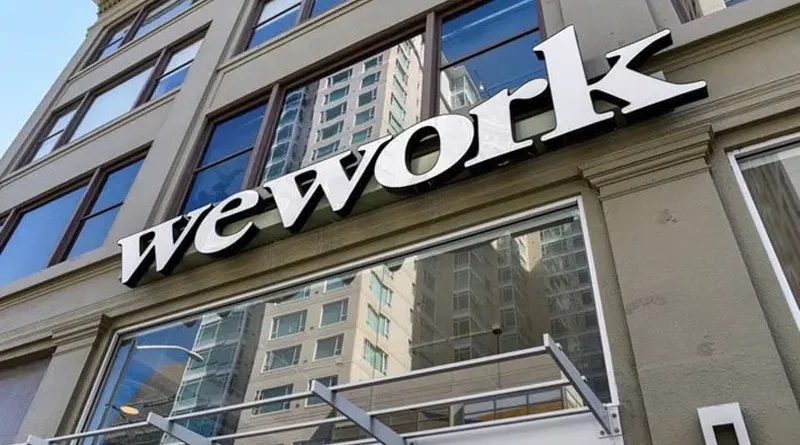SoftBank’s WeWork files for bankruptcy in US amid significant drop in shares
WeWork, a famous co-working space provider founded by Japan’s SoftBank Group, sought US bankruptcy protection on Monday after its investments in companies using more of its office-sharing space soured.
The move signifies SoftBank’s admission that the company cannot survive without renegotiating its expensive leases in bankruptcy, as it has invested billions in its turnaround.
According to a spokesperson from WeWork, under a restructuring support agreement, approximately 92% of the company’s lenders had consented to convert their secured debt into equity, eliminating about $3 billion in debt.
The company stated that it expected to have the financial liquidity to carry on with business as usual and that these proceedings would not have an impact on its locations outside of the United States and Canada, nor on its franchisees worldwide.
The company also plans to file recognition proceedings in Canada.
WeWork had office space available at 777 locations worldwide as of the end of June.
SoftBank said it believed WeWork’s restructuring support agreement was the appropriate action for the company to reorganize its business and emerge from Chapter 11 proceedings, according to Reuters.
“SoftBank will continue to act in the best long-term interests of our investors,” the Japanese company said in a statement
WeWork shares have fallen 98.5% this year due to high lease costs and cancellations from corporate clients due to remote work trends. In the second quarter of 2023, 74% of WeWork’s revenue was spent on space costs, the last time it reported financial results.
In a filing with the New Jersey bankruptcy court, WeWork listed assets of $15.06 billion and liabilities of $18.66 billion as of June 30.
“WeWork could use provisions of the US bankruptcy code to rid itself of onerous leases,” law firm Cadwalader, Wickersham & Taft LLP said in a note to landlords on its website in August. Some landlords are bracing for a significant impact.
“As part of today’s filing, WeWork is requesting the ability to reject the leases of certain locations, which are largely nonoperational, and all affected members have received advanced notice,” the company said in a statement.
Under its founder Adam Neumann, WeWork grew to be the most valuable US startup worth $47 billion. It attracted investments from blue-chip investors, including SoftBank and venture capital firm Benchmark, as well as the backing of major Wall Street Banks, including JPMorgan Chase.
Neumann’s pursuit of breakneck growth at the expense of profits, and revelations about his eccentric behavior, led to his ouster and the derailment of an initial public offering in 2019.
Shortly before WeWork filed for bankruptcy, Neumann said in a statement, “I believe that, with the right strategy and team, a reorganisation will enable WeWork to emerge successfully.”

